Dr William McVicker recently gave us an entertaining inaugural recital on the 1858 Walker organ at St Mary’s Ponsbourne, in Hertfordshire, after its restoration – he was consultant on the project, undertaken by Mander Organs of London. As William was also behind the massive Royal Festival Hall organ restoration project which has been so much in the news this Spring, I had to grab the opportunity for an interview.
William read music as Organ Scholar at the College of St Hild & St Bede at Durham University, going on to be Caedmon Fellow and Director of Music. He won a scholarship to study the organ in Paris in 1984 – and also a British Academy scholarship to study for a PhD in technical aspects of organ design. Now combining the roles of performer and technical advisor, he is Organ Curator at London’s Royal Festival Hall, Director of Music at St Barnabas Church Dulwich, and a visiting professor at the Royal Academy of Music. He’s currently Chairman of the Association of Independent Organ Advisors among other posts – for more details see here. And here are William’s answers to my five questions:
Which piece of music are you studying at the moment and why?
Bach’s Fantasia & Fugue in G minor. I have not played it in a while. I learned it from a Novello score in my teens and later relearned it from the Barenreiter edition which I now find too spaced out for comfort when I revisited the score recently. I turned the pages for David Goode at a concert and he used the Novello edition. It all seemed so familiar to me; when I ran through the work again using the Novello score I felt much more comfortable with it.
Secretly, I like all those indications ‘add full Swell’ etc.
What has been your best experience as an organist?
Playing for events at the Royal Festival Hall. I’ve given several recitals there now and 50 lecture demonstrations. Its a truly thrilling organ and the changes in acoustics have done wonders for its tonal balances.
What has been your worst experience as an organist?
Failing to turn up for a funeral. I totally forgot — I was so busy. It made me remember what a service we provide for the community. To forget a funeral is unforgivable and I feel terrible about it — even though it was many years ago.
What’s the best piece of advice you were given by an organ teacher? (and who was it?)
My first teacher, Robert Warner, frequently said ‘now you’ve learned the notes I’ll go and listen to you from the nave’.
We often forget to ask someone to listen to balances and fail to ask the question: ‘does it sound good to the listener?’ Balancing from the console is fatal, as is trying to judge how much articulation is appropriate in a particular space.
Last summer my choir gave a concert in the Hofkirche in Dresden — a huge acoustic. We had to be disciplined enough to perform at slower speeds in that vast space and to be resourceful enough to make changes in our performance and phrasing during rehearsal.
Robert Warner’s advice has really shaped my experience of the organ in ways he could not have imagined. When he first sent me down into the body of the church to listen to my sounds and registrations, I had no idea what he wanted me to listen for. Now I understand what he was teaching me, I realise that some organists never listen carefully to the sounds they make! And some organists are wedded to a tonal concept they somehow have in their head, without letting the organ they are performing on speak for itself. One must work with an instrument’s character to get the best from it. This is especially true of older organs, where English builders such as Willis, Hill, Lewis, Gray & Davison, JW Walker etc., all knew what they wanted to say in a tonal design. These days we want organs to sound roughly the same: loud, brash, snappy, and equally resourceful in all types of repertoire. Sometimes organists rebuild their instruments to conform with their ideas and consequently ruin a beautiful tonal scheme, designed and voiced by organ builders who knew their own mind. Robert’s early advice has really helped me in my work as an organ consultant, which now occupies most of my time.
What would be your own best piece of advice for student organists?
Right hand only; left hand only; left hand and pedals; right hand and pedals; hands together; then hands and feet together.
Then do it all again.
Percy Buck’s left-hand and pedal exercises in The First Year at the Organ are good enough to last a whole lifetime. Following his phrasing needs genuine skill.
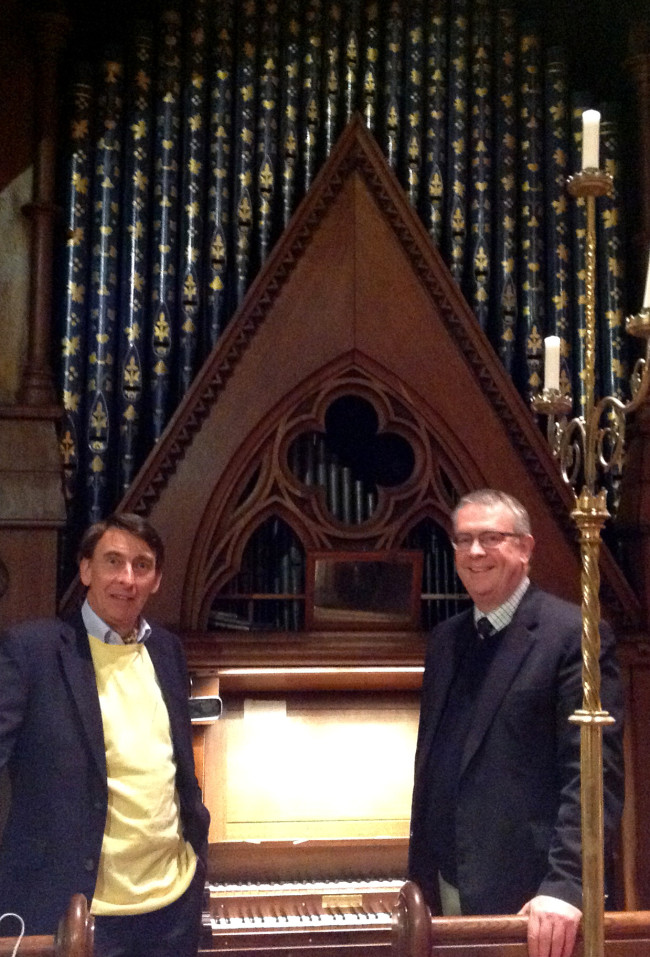


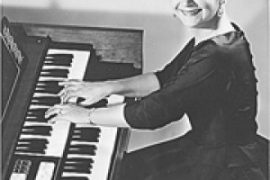
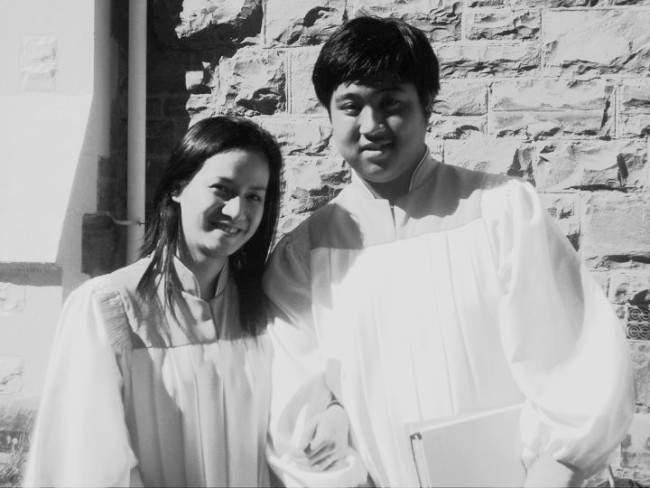
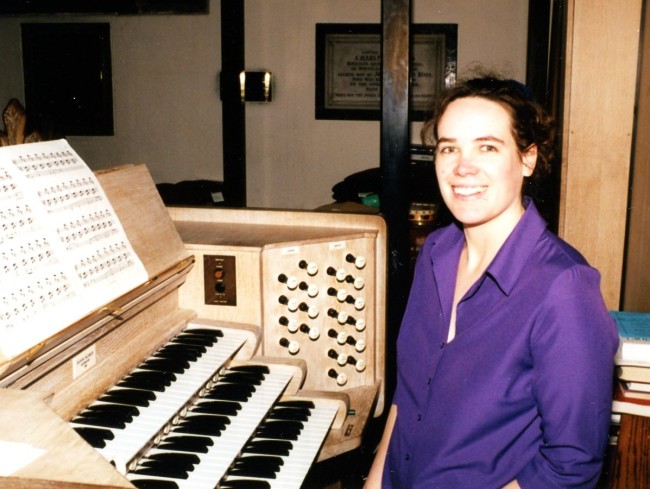
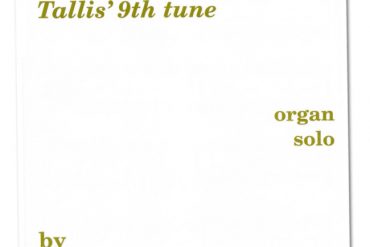
Thank you for support of Novello Bach. Whilst there is plenty scholarly thinking to admire in other editions, there is nothing like going back to what one started with. In a lot of cases, the page turns are in manageable places, and the older, larger editions are very good for their large print, good for tired eyes. One can always note any variations in the text.
What a wonderful interview! So true… its best to get someone to listen from the pews to get pre-recital comments on the sounds that the audience will hear during the performance. Organs always sound different from the organ bench! I also appreciated Mr. McVickers’ comments on respecting the integrity of each organ’s tonal design and not trying to make it into something that it was never meant to be. Thanks, Morwenna and Mr. McVicker!
Hi Morwenna. The organist at St Mary’s, Ponsbourne, Paul Minchinton, reminded me of your excellent blog the other day. We’ve been friends for over 30 years and I first tried the venerable Walker there in the 1980s. Just before the organ was overhauled by Mander’s recently Paul ‘sampled’ the instrument by painstakingly making audio recordings of each individual pipe – all 717 of them. Then I used these in my Prog Organ virtual pipe organ to re-create the pipe organ sounds digitally. The full story, with some music tracks, is on my website at http://www.pykett.org.uk/st-mary-ponsbourne-organ-walker-1858.htm.
Only today Paul and I have been discussing the prospect of carting Prog Organ up to the church from where I live on the south coast so that we could maybe have an unusual variation on the theme of ‘a battle of the organs’. In this case however, the battle would be between a pipe organ and an exact digital simulation of it, rather than between a pipe organ and a generic and quite different digital organ as is usually done. If this takes place, you’d be very welcome to take part as far as I am concerned! Best wishes, Colin Pykett
Colin, thanks for this! – I’m sure Paul told you I am playing on that organ quite a bit now, but have only known it since its Manders overhaul, so fascinating to read all about its background and hear its pre-restoration sound – which actually sounds very similar to how it sounds now, but perhaps now with a bit more confidence and guts about it! Let battle commence! Morwenna